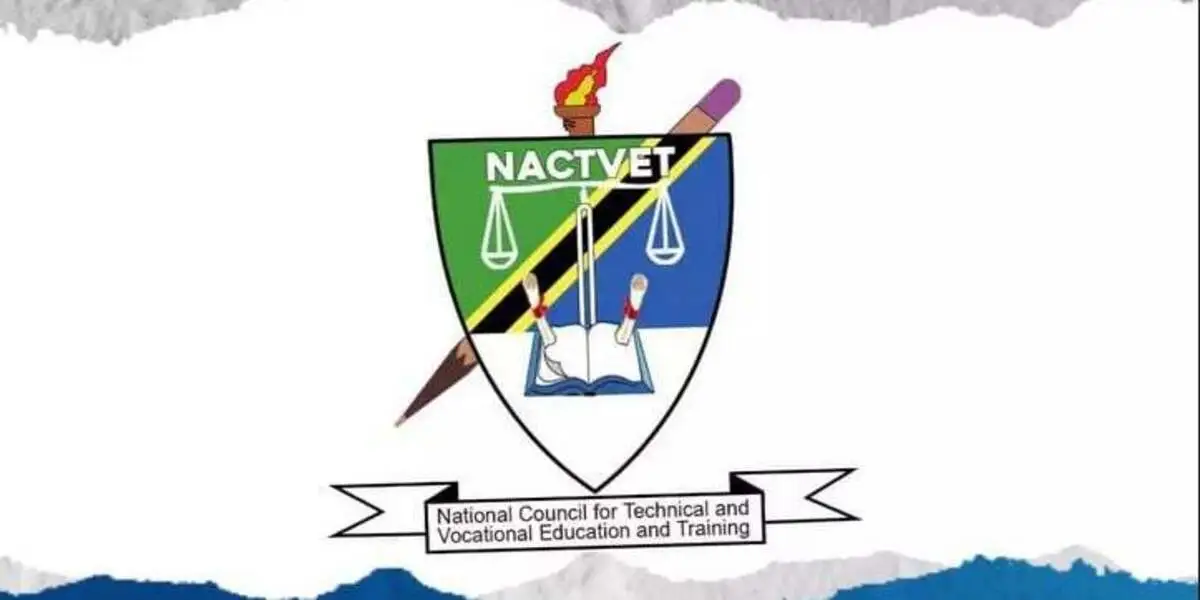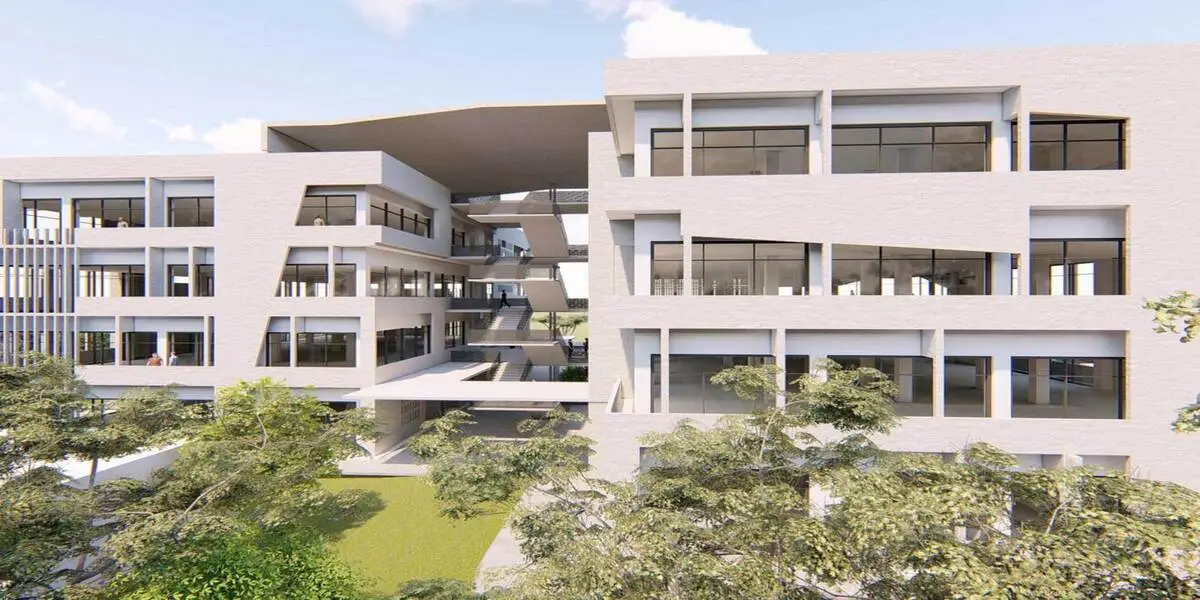Dar Es Salaam Institute of Technology (DIT) is committed to providing a learning environment that promotes a passion for excellence in professionalism and enduring knowledge.
Furthermore, it stimulates creativity and innovation consistent with the country’s and region’s needs.
The College also embraces a competence-based education and training approach. The Institute is fast establishing itself as the ideal tertiary institution for holistic student development.
Through the Teaching Factory Concept, the college is focused on nurturing the growth of academic excellence and instilling the importance of scientific and engineering skills and entrepreneurship.
Also Read: Mbeya University of Science and Technology Admission 2025/26
Table of Contents
Historical Background
The Dar es Salaam Institute of Technology (DIT) is a government Institution established in 1997 by an Act of Parliament (“the DIT Act No 6 of 1997” to replace the Dar es Salaam Technical College, which had a long history of technical training in Tanzania from 1957.
The Dar es Salaam Technical Institute was established to provide vocational training in the country.
The Institute later expanded its scope to offer technical secondary school courses and training for Technical Assistants before it was upgraded in 1962 to become the Dar es Salaam Technical College (DTC), the first formal technical training institution in the country.
DTC was aimed to train technicians under the London City and Guilds Training Program. To enhance its contribution to the national capacity building in technical manpower, the College 1964 introduced the two-and-a-half-year Ordinary Technician Diploma (OTD).
Also Read: Engineering Tutorials: The Complete Tutorials for Engineers
Compuses
Dar es Salaam Institute of Technology (DIT) has three campuses in the Dar es Salaam, Mwanza, and Songwe regions.
Dar es Salaam Compus
Dar es Salaam Main Campus offers a wide range of full and part-time courses in applied science engineering and professional training programmes leading to the awards of Ordinary Diploma, Bachelor of Engineering, Bachelor of Technology and Master Degree programmes.
These programmes are offered by six academic Departments, namely, the Civil Department, Electrical Department, Electronics & Telecommunications Department, Mechanical Department, Computer Studies Department, and Laboratory Science & Technology Department.
The General Studies Department supports the academic departments through teaching Mathematics, Communications Skills, Research, and Entrepreneurship Education modules.
Mwanza Campus
DIT Mwanza campus offers Ordinary Diploma courses in Science and Laboratory Technology and Leather Products Technology.
Songwe Compus
DIT Myunga campus in the Songwe region, offers Vocational Training Programmes on Plumbing and Pipe Fitting (PL) and Information Communication Technology (ICT) and various professional short training programs.
Also Read: HESLB: What is it? Its Functions and All You Need to Know
Academic Structure
Departments
Dar es Salaam Institute of Technology (DIT) is organized into various departments. These departments include:
- Computer Studies
- Civil Engineering
- Electrical Engineering
- Electronics and Telecommunications Engineering
- Mechanical Engineering
- Science and Laboratory Technology
- General Studies
Also Read: The Complete List of BSs in Civil Engineering Subjects
Programs Offered At DIT

Certificate Programmes (NTA 1-3)
- Information Communication Technology (ICT)
- Plumbing and Pipe Fitting (PPF)
- Leather Product Technology
- Science and Laboratory Technology
Diploma Programmes (NTA 4-6)
- Ordinary Diploma in Leather Products Technology
- Ordinary Diploma in Leather Processing Technology
- Ordinary Diploma in Food Processing Technology
- Ordinary Diploma in Science and Laboratory Technology
- Ordinary Diploma in Textile Technology
- Ordinary Diploma in Post-Harvest Technology
- Ordinary Diploma Fashion and Design Technology
- Ordinary Diploma in Bioprocess Technology
- Ordinary Diploma in Civil Engineering
- Ordinary Diploma in Computer Engineering
- Ordinary Diploma in Electrical Engineering
- Ordinary Diploma in Electronics and Telecommunication Engineering
- Ordinary Diploma in Mechanical Engineering
- Ordinary Diploma in Science and Laboratory Technology
- Ordinary Diploma in Mining Engineering
- Ordinary Diploma in Biomedical Equipment Engineering
- Ordinary Diploma in Information Technology
- Ordinary Diploma in Electrical and Renewable Energy Technology
- Ordinary Diploma in Communication System Technology
- Ordinary Diploma in Multimedia and Film Technology
- Ordinary Diploma in Food Science and Technology
- Ordinary Diploma in Biotechnology
Degree Programmes (NTA 7-8)
- Bachelor of Engineering in Civil Engineering
- Bachelor of Engineering in Computer Engineering
- Bachelor of Engineering in Electrical Engineering
- Bachelor of Engineering in Electronics and Telecommunication Engineering
- Bachelor of Engineering in Mechanical Engineering
- Bachelor of Engineering in Oil and Gas Engineering
- Bachelor of Engineering in Mining
- Bachelor of Technology in Laboratory Sciences
- Bachelor of Engineering in Biomedical Engineering
Masters’ Programmes (NTA 9)
- Master of Engineering in Maintenance Management
- Master of Technology in Computing and Communications
- Master of Engineering in Sustainable Energy Engineering
- Master In Computational Science and Engineering
- Masters of Science in Cyber Security and Digital Forensics
- Masters of Information Systems Engineering and Management
- Masters of Telecommunications Systems and Networks
- Masters of Science in Cyber Security and Digital Forensics
- Masters of Information Systems Engineering and Management
- Master of Engineering in Telecommunication Systems and Networks
Also Read: The Complete List of Diploma in Civil Engineering Subjects
Entry Requirements
Ordinary Diploma
- To qualify for admission under the direct scheme, a candidate must be a holder of a Certificate of Secondary Education (CSEE) with at least four (4) passes (i.e., D grade or higher) in Physics/ Engineering Science, Mathematics, Chemistry, and any other subject excluding a religious subject.
- For admission into the Ordinary Diploma (NTA LEVEL 4-6) in Science and Laboratory Technology, Biomedical Equipment Engineering, and Food Science and Technology applicants must be a holder of a Certificate of Secondary Education (CSEE) with D grade or higher or Possession of a General Certificate Course in Engineering (GCE). OR
- Holder of a Certificate of Secondary Education (CSEE) with a minimum of D grade in Mathematics and National Vocational Award (NVA) Level III or Trade Test Certificate of Grade I in the relevant field offered by VETA accredited Institution.
Bachelor Degree – three (3) years programmes
- To qualify for admission into Bachelor Degree (NTA Level 7- 8) three (3) years programmes, the following minimum entry qualifications are required:(i) Candidates applying for Bachelor of Engineering or Bachelor of Technology must be holders of Ordinary Diploma (NTA Level 6) or its equivalent in the respective field with minimum Grade Point Average (GPA) of 3.0 from a recognized institution by the National Regulating Authority and at least four (4) passes (i.e. D grade or higher) in relevant subjects at Certificate of Secondary Education (CSEE) or General Certificate Course in Engineering (GCE) or NVA Level III or Trade Test Certificate of Grade I in the relevant field with a minimum of D grade in Mathematics at Certificate of Secondary Education (CSEE).
- Or A holder of good Full Technician Certificate (FTC) or its equivalent in the relevant field from a recognized institution by the National Regulating Authority with an average of minimum pass of C or an average of minimum 3 points based on the following conversion scale: A=5, B=4, C=3, D=2 or its equivalent and at least four (4) passes (i.e D grade or higher) in the relevant subjects at Certificate of Secondary Education (CSEE) or General Certificate Course in Engineering (GCE) or Trade Test Certificate of Grade I in the relevant field with a minimum of D grade in Mathematics at Certificate of Secondary Education (CSEE).
Bachelor Degree – four (4) years programmes
- To qualify for admission into Bachelor Degree (NTA Level 7- 8) four (4) years programmes, the following minimum entry qualifications are required: (ii) Holder of the Advanced Certificate of Secondary Education (ACSEE) in the combination of Physics, Chemistry and Mathematics (PCM) or Physics, Geography and Mathematics (PGM) with principal Pass in Mathematics and Physics from the same sitting with a total of not less than 4.0 points based on the following conversion scale: (A=5, B=4, C=3, D=2, E=1, S=0.5, F=0 for candidates who completed form Six before 2014 and after 2015, and A=5, B+=4, B=3 C=2, D=1, E=0.5, F=0 for candidates who completed Form Six in 2014 and 2015.
- Or (iii) Applicants with NTA Level 6 qualifications applying for a field of study other than a field studied at NTA Level 6 must also meet the entry requirements stated in Clause 3.2.1.
Master of Engineering in Maintenance Management Programme
- Admission to the programme will be open to candidates who have NTA level 8 qualifications or equivalent who fulfill one of the following requirements: (i) Applicants must be Holders of a bachelor’s degree in Engineering with a GPA of at least 2.7 from a recognized higher learning institution.
- OR (ii) Applicants must be Holders of a Bachelor’s degree in Engineering with PASS from a recognized higher learning institution and with three years working experience.
- OR (iii) Holders of an Advanced Diploma in Engineering with a PASS from a recognized higher learning institution and with a minimum of three years working experience.
Master of Technology in Computing and Communications
- Admission to the programme will be open to candidates who have NTA level 8 qualifications or equivalent who fulfill one of the following requirements: (i) Applicants must be Holders of a bachelor’s degree in Engineering or Science with a GPA of at least 2.7 from a recognized higher learning institution.
- OR ii) An applicant must be a holder of a bachelor’s degree in engineering or science with PASS from a recognized higher learning institution provided that their average undergraduate performance in the subjects related to the programmes of study is a ‘B’ grade or higher.
- OR (iii) A holder of an Advanced Diploma in Engineering or Science with a PASS from a recognized higher learning institution with a minimum of five years working experience.
Also Read: What is TCU?: Everything You Need to Know About TCU
How To Apply
- Online Application System: All applicants for Certificate, Diploma, bachelor’s, and master’s Programmes should apply online through the website: https://admission.dit.ac.tz/admission/apply
- Create an Account: If you are a new user, create an account by providing your Form IV index number or equivalent award index number and UPERCASE surname as password.
- Fill in Personal Information: Enter your details, including your full name, active mobile number, and email address.
- Academic Background: Provide information about your previous academic qualifications, including certificates, diplomas, degrees, institutions attended, and grades or GPA.
- Program Selection: Select the level you wish to apply for from the available options, such as National Vocational Award, Diploma, bachelor’s, and master’s programmes.
- Upload Documents: Upload scanned copies of the required documents, such as your academic transcripts, certificates, and a recent photograph.
- Submit Application: Review your application carefully and submit it. Make sure all the information provided is accurate and complete.
Also Read: Engineer | Definition and History You Should Know Right Now
Summary
Dar es Salaam Institute of Technology (DIT) is a beacon of academic excellence and a pillar of higher engineering education in Tanzania.
With its rich history, diverse academic offerings, and commitment to research and innovation, it continues to shape the future of countless students.
Get started on your Dar es Salaam Institute of Technology (DIT) admissions application right now.
Important Links:
- How to apply
- Programs offered
- Fee structure
- For more information, visit https://dit.ac.tz/
See you!
If you liked this article, please Join WebsiteForEngineers on Telegram, and you can also find us on Pinterest, Twitter, and Facebook.










